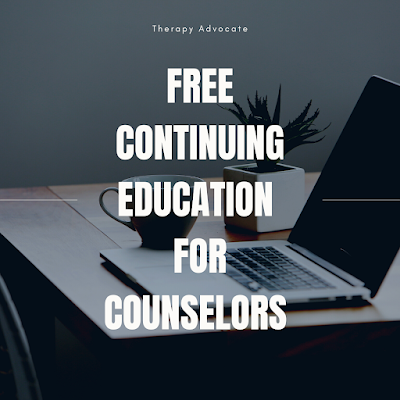There are decks for almost any modality you use so you can stay in line with your preferred theory. Or decks can be used to broaden your approach by incorporating interventions from other modalities.
These decks are useful in individual, group, and family therapy. Be on the look out for a post geared toward group therapy card decks as well.
from Seth J. Gillihan
Reduce stress in your life with practical, action-oriented, and mindfulness tools to quickly build positive emotions in your life. The 101 practices inside The CBT Deck will help you:
- Calm and redirect your thoughts
- Overcome self-limiting beliefs
- Choose actions that build the life you want
- Be more connected and engaged in the present moment
from Seth J. Gillihan
When you’re a kid, growing up can be hard. The 58 cognitive behavioral therapy (CBT) practices in this deck were created just for young people to help them manage stressful moments, overcome negative thinking, and find moments of peace. This beautifully illustrated deck will help kids and teens:
- Build coping skills that will last a lifetime
- Quiet anxiety and worry
- Navigate difficult emotions
- Choose actions that make life better
- Relax into the present


from Laura Dessauer
Sometimes words aren't enough. Art therapy allows for processing and externalization of emotions, exploration of choices, and reflection on conflicts. This deck can help children and adolescents to develop a growth mindset, increase their frustration tolerance, and strengthen their communication skills to reach their goals.


from Matthew McKay PhD
Based on the best-selling The Dialectical Behavior Therapy Skills Workbook, this powerful and portable card deck presents 52 practices to help you balance your emotions and improve your life!
First developed for treating borderline personality disorder, dialectical behavior therapy (DBT) has proven effective as treatment for a range of other mental health problems, especially for those characterized by overwhelming emotions. Now, you can easily and quickly access this powerful therapy method in bite-sized pieces.
On each card, you'll find:
- Highly effective mindfulness strategies to help you stay grounded
- Tips to help you improve relationships
- Skills for emotion regulation and distress tolerance
Whether you’re a therapist looking for unique client resources, a teacher, a parent, or simply seeking to balance your own emotions, this card deck offers daily wisdom and evidence-based skills for lasting peace, happiness, and well-being.


from Cards for Calm LLC
- Used by counselors, therapists, social workers, and teachers to combat anxiety and negative thinking.
- A mindfulness therapy tool that encourages positive behavior while reducing stress, anger, and worry.
- Cards for Calm uses techniques from mindfulness and cognitive behavioral therapy to prompt discussion and different patterns of thinking.
- Find new ways to deal with confrontation, improve social skills and increase focus.
- Cards for Calm can be used in remote or in person therapy sessions. Recommended for ages 15 and over.
from Lane Pederson
Filled with tips, ideas, calls to action, and brief exercises, these cards will be a daily go-to as you learn skills needed to enjoy the ups -- and navigate the downs -- of real-world life. And best yet, because skills take repeated practice, you cannot outgrow this deck, you can only grow with it!
- Coping strategies
- Tools to accept change
- Self-Soothing practices
- Increase self-respect
- Conflict resolution tips
from Timothy Gordon
The ACT Deck offers 55 practices based on Acceptance and Commitment Therapy for use in therapy, classrooms or at home. These cards ask tough questions, encourage meaningful action and provide new perspectives to help you let go of negative thoughts and live in the present moment.
Using mindfulness and acceptance strategies, this highly practical deck can help anyone suffering from:
- Stress
- Anxiety & depression
- Chronic pain
- Relationship problems
- Focus and attention issues
- Painful memories & feelings
Exploring values is always a worthy endeavor and having cards helps clients think through their values. You can create sorts by having clients identify important, not important, or very important values. Creates lots of room for discussion and can be revisited periodically if things change.
from Judson Brewer and Mitch Abblett
STEP OUT OF YOUR ANXIETY AND INTO YOUR LIFE!
Based on Dr. Brewer’s New York Times best-selling book Unwinding Anxiety, this deck features 60 research-based practices to help you identify and overcome unhelpful anxiety responses, or habits, that prevent you from living life to the fullest.
Grounded in the science of mindfulness, each exercise harnesses your brain’s innate power to create new responses to anxiety triggers, so you can:
- Form new habits that interrupt your anxious cycles
- Focus on what works instead of trying to control your anxiety
- Explore the misleading “payoff” of anxious habits
- Step out of worry and rumination and into healthy, fulfilling experiences
- Create bigger, better habits that build kindness, curiosity, and gratitude
from Theo Koffler
Whether you're at home, in the classroom, or running a clinical practice, these conversation cards are meant to get people thinking and talking about who they are, what they like, and how they interact with the world around them.
Each question targets different skills and areas of life, but all the questions have one primary purpose: to get you discussing the important fundamentals of an emotionally balanced, mindful and compassionate way of living.



















